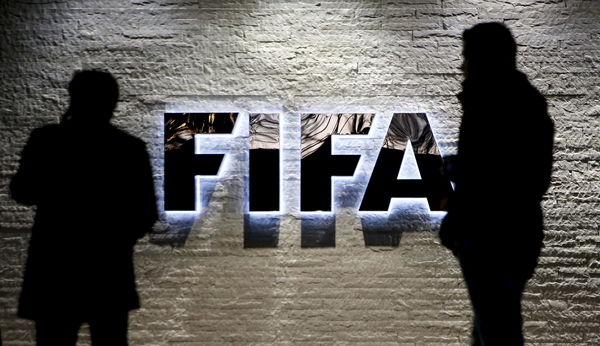
via Reuters
Journalists gather in front of FIFA’s headquarters in Zurich, Switzerland December 2, 2015. REUTERS/Arnd Wiegmann

via Reuters
Journalists gather in front of FIFA’s headquarters in Zurich, Switzerland December 2, 2015. REUTERS/Arnd Wiegmann
By Brian Homewood
ZURICH (Reuters) – FIFA’s executive committee approved a package of planned reforms on Thursday aimed at cleaning up soccer’s scandal-plagued world governing body, proposing integrity checks and term limits for senior officials and a new separation of policy and management positions.
The proposals, which would also increase representation for women, will be presented in February to FIFA’s Congress, which has the power to alter its statutes.
ADVERTISEMENT
Article continues below this ad
At the same time, the executive committee, currently headed by an interim president owing to the suspension of Sepp Blatter, delayed a decision on a controversial proposal to expand the World Cup from 32 to 40 teams.
Ironically, an announcement intended to help FIFA clean up its act was overshadowed by the arrests of executive committee members Alfredo Hawit and Juan Angel Napout at the luxury Zurich hotel where they had been staying, and news that U.S. officials were to issue 14 new indictments related to corruption in soccer.
Hawit and Napout, respectively heads of the North and Latin American confederations CONCACAF and CONMEBOL, were arrested by Swiss police at the behest of U.S. authorities on suspicion of taking millions of dollars in bribes linked to television rights.
The arrests were part of a series of widening corruption investigations, not least against Blatter, who is suspended for 90 days and will be replaced at the Congress in February.
Acting president Issa Hayatou said the committee’s work had gone ahead as planned on Thursday, with two members fewer at the table.
“The events underscored the need to establish a complete programme of reforms for FIFA today,” he told reporters. “These recommendations mark the beginning of a change of culture in FIFA. A great step forward has been taken.”
TERM LIMITS
Under the proposals, FIFA’s president and leading officials would be restricted to three terms of four years each, and subjected to centralised integrity checks before taking office.
An age limit of 74, which had been proposed in an original eight-point plan by audit and compliance committee head Domenico Scala, was not included.
“We have given up the age limits because it is by definition arbitrary,” said Francois Carrard, head of FIFA’s Reform Committee, which followed up on Scala’s original plan.
A 36-strong FIFA Council would replace the 25-member executive committee and set “overall strategic direction”, while a general secretariat would oversee the “operational and commercial actions required to effectively execute that strategy”.
Scala said he was pleased that the executive committee had unanimously backed the reforms, particularly highlighting term limits, but that they were not sufficient in themselves.
“There is a deep crisis and there will be change,” he told a conference call. “Systems, processes, rules, compliance programmes, they are all right things to be done – but you need the cultural change.”
Under the proposals, there would also be at least one female representative on the Council for each of the six continental confederations.
ADVERTISEMENT
Article continues below this ad
FIFA said its statutes would include a new article obliging its member federations to respect human rights, although it did not specify how this would be implemented.
The number of standing committees would be reduced from 26 to nine, and among these would be a new committee formed of representatives of national leagues, clubs and players.
The proposal to enlarge the World Cup was put on hold. “There was no decision on this proposal, but it will be further debated,” FIFA said in a statement.
ADVERTISEMENT
Article continues below this ad
Many people involved in football believe that 32 is the ideal number of participants for a World Cup, and that a larger tournament would be less manageable and suffer a drop in quality.
(Writing by Brian Homewood; Editing by Kevin Liffey)
ADVERTISEMENT
ADVERTISEMENT
ADVERTISEMENT
ADVERTISEMENT

